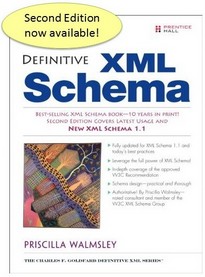gml:componentReferenceSystem
The gml:componentReferenceSystem elements are an ordered sequence of associations to all the component coordinate reference systems included in this compound coordinate reference system. The gml:AggregationAttributeGroup should be used to specify that the gml:componentReferenceSystem properties are ordered.
Element information
Namespace: http://www.opengis.net/gml/3.2
Schema document: external/ogc/gml/3.2.1/coordinateReferenceSystems.xsd
Type: gml:SingleCRSPropertyType
Properties: Global, Qualified
Content
- Choice [0..1]
- gml:ProjectedCRSgml:ProjectedCRS is a 2D coordinate reference system used to approximate the shape of the earth on a planar surface, but in such a way that the distortion that is inherent to the approximation is carefully controlled and known. Distortion correction is commonly applied to calculated bearings and distances to produce values that are a close match to actual field values.
- gml:DerivedCRSgml:DerivedCRS is a single coordinate reference system that is defined by its coordinate conversion from another single coordinate reference system known as the base CRS. The base CRS can be a projected coordinate reference system, if this DerivedCRS is used for a georectified grid coverage as described in ISO 19123, Clause 8.
- gml:GeodeticCRS
- gml:VerticalCRSgml:VerticalCRS is a 1D coordinate reference system used for recording heights or depths. Vertical CRSs make use of the direction of gravity to define the concept of height or depth, but the relationship with gravity may not be straightforward. By implication, ellipsoidal heights (h) cannot be captured in a vertical coordinate reference system. Ellipsoidal heights cannot exist independently, but only as an inseparable part of a 3D coordinate tuple defined in a geographic 3D coordinate reference system.
- gml:EngineeringCRSgml:EngineeringCRS is a contextually local coordinate reference system which can be divided into two broad categories: - earth-fixed systems applied to engineering activities on or near the surface of the earth; - CRSs on moving platforms such as road vehicles, vessels, aircraft, or spacecraft, see ISO 19111 8.3.
- gml:ImageCRSgml:ImageCRS is an engineering coordinate reference system applied to locations in images. Image coordinate reference systems are treated as a separate sub-type because the definition of the associated image datum contains two attributes not relevant to other engineering datums.
- gml:TemporalCRSgml:TemporalCRS is a 1D coordinate reference system used for the recording of time.
- gml:GeographicCRS
- gml:GeocentricCRS
from subst. group gml:AbstractSingleCRSfrom subst. group gml:AbstractGeneralDerivedCRSfrom subst. group gml:ProjectedCRSfrom subst. group gml:DerivedCRSfrom subst. group gml:GeodeticCRSfrom subst. group gml:VerticalCRSfrom subst. group gml:EngineeringCRSfrom subst. group gml:ImageCRSfrom subst. group gml:TemporalCRS
Attributes
| Name | Occ | Type | Description | Notes |
|---|---|---|---|---|
| xlink:type | [0..1] | xsd:string | Fixed value is "simple". from group xlink:simpleLink | |
| xlink:href | [0..1] | xsd:anyURI | from group xlink:simpleLink | |
| xlink:role | [0..1] | xsd:anyURI | from group xlink:simpleLink | |
| xlink:arcrole | [0..1] | xsd:anyURI | from group xlink:simpleLink | |
| xlink:title | [0..1] | xsd:string | from group xlink:simpleLink | |
| xlink:show | [0..1] | Anonymous | The 'show' attribute is used to communicate the desired presentation of the ending resource on traversal from the starting resource; it's value should be treated as follows: new - load ending resource in a new window, frame, pane, or other presentation context replace - load the resource in the same window, frame, pane, or other presentation context embed - load ending resource in place of the presentation of the starting resource other - behavior is unconstrained; examine other markup in the link for hints none - behavior is unconstrained | from group xlink:simpleLink |
| xlink:actuate | [0..1] | Anonymous | The 'actuate' attribute is used to communicate the desired timing of traversal from the starting resource to the ending resource; it's value should be treated as follows: onLoad - traverse to the ending resource immediately on loading the starting resource onRequest - traverse from the starting resource to the ending resource only on a post-loading event triggered for this purpose other - behavior is unconstrained; examine other markup in link for hints none - behavior is unconstrained | from group xlink:simpleLink |
| nilReason | [0..1] | gml:NilReasonType | from group gml:AssociationAttributeGroup | |
| gml:remoteSchema | [0..1] | xsd:anyURI | from group gml:AssociationAttributeGroup |
Used in
- Type gml:CompoundCRSType (Element gml:CompoundCRS)
- Type gmx:ML_CompoundCRS_Type via extension of gml:CompoundCRSType (Element gmx:ML_CompoundCRS)
Substitution hierarchy
- gml:componentReferenceSystem
- can be substituted with gml:includesSingleCRS
Sample instance
<gml:componentReferenceSystem> <gml:ProjectedCRS gml:id="ID"> <gml:metaDataProperty> <gml:GenericMetaData>Any text, intermingled with: <!--any element--> </gml:GenericMetaData> </gml:metaDataProperty> <gml:description>string</gml:description> <gml:descriptionReference/> <gml:identifier codeSpace="http://www.example.com/">string</gml:identifier> <gml:name>string</gml:name> <gml:remarks>string</gml:remarks> <gml:domainOfValidity> <gmd:EX_Extent>............ </gmd:EX_Extent> </gml:domainOfValidity> <gml:scope>string</gml:scope> <gml:conversion> <gml:Conversion gml:id="ID">... </gml:Conversion> </gml:conversion> <gml:baseGeodeticCRS> <gml:GeodeticCRS gml:id="ID">... </gml:GeodeticCRS> </gml:baseGeodeticCRS> <gml:cartesianCS> <gml:CartesianCS gml:id="ID">... </gml:CartesianCS> </gml:cartesianCS> </gml:ProjectedCRS> </gml:componentReferenceSystem>



